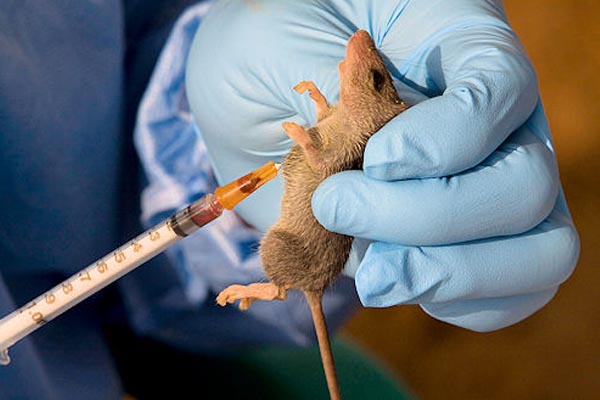Other News
Peter Obi Asks the FG to Support Private Universities

Mr. Peter Obi, the Labour Party (LP) candidate for president in the 2023 general election, has urged the Federal Government to provide financial assistance to private universities within the nation.
Obi delivered this address at Madonna University in Elele, Rivers State, on Wednesday, March 20th.
Read also: Nkechi Blessing Threatens to Expose Verydarkman’s Bedroom Videos, Shares Clips
He said, “Government should support private universities in the country because they are doing the work of the government. They should not be charged exorbitantly in the name of Internal Generated Revenue.”
The former governor of Anambra State, noting the critical importance of education in every society, described it as the most essential investment a country can undertake for its citizens.
He demanded that all levels of government collaborate with private schools across the nation, from elementary to tertiary education.
He urged Nigerians to pray that their leaders would allocate public funds for the greater welfare of society rather than for their own benefit.
Other News
Fans Fear As Khaid Deactivates His IG Account Days After Being Seriously Ill

Khaid, a rising artist from Nigeria, made his fans fear online as he deactivated his Instagram account.
It was discovered that the singer, who was admitted to the hospital several weeks prior, had disappeared from the photo-sharing website.
Many people’s reactions to the revelation have been mixed, with some saying the artist was merely using it to promote his upcoming album.
Read also: How God Jammed The Guns Of Firing Squads That Were About to Kill Me – Gospel Singer Buchi Recounts
See screenshot:
Other News
How God Jammed The Guns Of Firing Squads That Were About to Kill Me – Gospel Singer Buchi Recounts

Nigerian gospel musician Buchi Atuonwu has shared his story of nearly being killed by a firing squad.
In an interview with Channels Television, the award-winning musician talked about his experience and how God saved him.
He disclosed that he was about to be put to death at one point in his life when he cried out to God, offering to serve him in exchange for his life. He has dedicated his life to serving God ever since God granted him his wish.
“At a point in my life, we were lined up for execution. It is true that the people that were to execute us, were kneeling before us, ready to fire. I called out to a God that I didn’t know that if He saves me, I will serve him. He saved me from that firing squad and I devoted my life to serving him.”
Buchi had warned the public the previous year to reject online reports that he had passed away. In a phone conversation with the News Agency of Nigeria (NAN) in Enugu, the singer denied the claim.
Read also: American Int’l School Abuja to Refund $760K from Kogi Ex-Gov Bello’s Tuition Payment
Previously, Buchi told the story of how a young child in northern Nigeria rescued him from Islamic extremists.
The gospel performer is not the only one who God has saved and given his life to.
Yul Edochie disclosed last year how God spared his life in 2019 following a horrific vehicle accident. He said that while he was supposed to die, God granted him a second chance at life. He said that God revealed to him that his second life will be dedicated to serving people, his word, and his own glory.
The actor revealed that he had been called into ministry a long time ago, but that he felt the timing wasn’t right. Now that he was back to full health, he was prepared to accept the calling.
Before closing it down, the actor conducted two services at his newly established virtual church.
Other News
Fear as Lassa Fever Spreads Across 16 States in Nigeria

As of the most recent count, over 100 instances of lassa fever had been reported throughout 16 states in Nigeria, accounting for a large number of fatalities.
The Nigeria Centre for Disease Control and Prevention, or NCDC, reports that in the week between February 26 and March 3, it received reports of 109 instances of lassa fever in 16 states, along with 20 fatalities.
As per the NCDC, lassa fever is an acute viral hemorrhagic illness that causes profuse bleeding, which is spread to people through contact with food or household items contaminated by rodents carrying the virus or contaminated individuals.
Fever, headaches, sore throats, weakness throughout the body, coughing, nausea, vomiting, diarrhea, chest pains, muscle aches, and, in extreme situations, bleeding from the mouth, nose, ears, or other body openings without any apparent cause are some of its symptoms.
According to the organization, the nation was still experiencing new cases and fatalities in spite of the efforts.
According to the report, 1:0.9 is the male-to-female ratio for confirmed cases, and the age bracket most affected is 31 to 40.
The National Lassa Fever multi-partner, multi-sectoral event management system, according to the public health agency, has been turned on to coordinate response at all levels at the Emergency Operations Centre (EOC).
The agency lists Ondo, Bauchi, Edo, Benue, Ebonyi, Kogi, Kaduna, Taraba, Enugu, Delta, Jigawa, Adamawa, Anambra, Rivers, Ogun, and Oyo among the affected states.
According to the report, the states of Ondo, Edo, and Bauchi accounted for 62% of all confirmed cases, with the remaining states accounting for 38% of cases.
The NCDC reported on its official website that there was a rise in confirmed cases for week nine of 2024 compared to week eight, when there were 96 cases.
Read also: Lagos Police Save Two Alleged Phone Thieves from Angry Mob
“Cumulatively, the report shows that from weeks one to nine, Nigeria recorded 682 confirmed cases and 128 deaths with a case fatality rate, CFR, of 18.8 percent, which is higher than the CFR for the same period in 2023, at 16.1 percent,” said NCDC.
The Federal Medical Centre (FMC) in Jalingo, Taraba State, said on March 6 that lassa fever was verified to have killed 19 people in January and February of this year.
The state Ministry of Health was actively monitoring the situation and collaborating with the NCDC and FMC Jalingo authorities to control the disease’s spread, according to state Commissioner for Health Gbangsheya Buma, who confirmed the disease’s outbreak to journalists.
“It is not a surprising thing; this is the season and we have made preparations. Though the outbreak may be overwhelming, I just received support from the NCDC. They have sent some people here to provide technical support with the aim of stopping the progress of the disease.
“We are actually on top of it. We have provided support as a state to the FMC to provide free treatment to patients of Lassa fever.
“Eight of the nine blood samples from suspected cases collected from the FMC Jalingo as of last Friday have been confirmed for Lassa fever,” Buma said.
The acting Head of Clinical Services at the FMC Jalingo, Joseph Kuni, who further confirmed the development, said that “presently we have 10 patients in our isolation ward. The results for some of them are being awaited.”
Kuni disclosed that from January to February, the centre had recorded 19 Lassa fever related deaths from the isolation centre.
“From January to February, we sent 105 samples, and 60 of them came out positive for Lassa fever, while 39 came out negative and the remaining ones are still being awaited,” he added.
Also on March 2, Benue State was equally said to have recorded 46 lassa fever cases and nine deaths in seven local government areas of the state, with some of the cases emanating from the Internally Displaced Persons’ camps in the state.
The state epidemiologist, Dr. Terungwa Ngishe, who disclosed this in Makurdi, the Benue State capital, said the council areas affected in the outbreak included Obi, Okpokwu, Gwer West, Makurdi, Guma, Gwer East, and Ukum.
He revealed that the infection rate was higher than the figure from last year, assuring that sustained efforts were on to contain the outbreak.
He said: “From the results obtained, Benue has 46 cases of lassa fever. The cases are spread across seven LGAs, namely: Obi, Okpokwu, Gwer West, Makurdi, Guma, Gwer East, and Ukum.
“It is actually an increase compared to what we had last year. So far, we have nine deaths in confirmed cases as we speak.
“And we have been able to bury all the dead in accordance with safe burial protocols across the various areas of the state where they hail from. And we have sustained a response through the intervention of the Federal Government, World Bank, and the NCDC.
“They have spoken loudly to enhance our surveillance efforts, risk communication in the communities; and have also spoken to the laboratory component of the response and coordination.
“Given the number of deaths we have recorded, we are hoping to reduce the number such that the key fatality rate for the state is less than 10 percent; which is what the nation expects from the state. For now, what we have is above that figure.”
On when the state recorded its first case this season, Ngishe, said: “The first case was noticed in week 50 of last year. As you know, generally, there are shortages of personnel for several reasons, and Benue State is not exempted.
“However, we are looking forward to such capacity staff that will join and help us in the course of the response; because, when you are overwhelmed or have a lot of cases, you inform the government and the partners and keep improving on it.”
Also on March 2, the Ebonyi State Ministry of Health said 14 deaths have been recorded out of about 110 suspected cases of lassa fever recently recorded in the state.
Dr. Hyacinth Ebenyi, the Director of Public Health at the ministry, said that the 14 cases were among the 29 confirmed cases of the disease recorded as of February 20.
Ebenyi expressed concern that no fewer than 110 suspected cases of the disease were recently recorded in the state.
“Yes, there has been an increase in the cases of Lassa fever. The disease is really endemic in the state. It did not just start now; it has been here, mostly during the dry season.
“So far, we have had suspected cases of 110, and out of this figure, we recorded 29 confirmed cases. Out of the 29 cases, as of Tuesday, we lost 14 persons,” the director said.
Again on March 25, Ebonyi State Government came up with a more comprehensive report about the development. It revealed that about 23 persons have been killed by Lassa fever in the state this year.
The State’s Disease Surveillance and Notification Officer, Orogwu Sampson, disclosed this to journalists in Abakaliki.
He said the state has recorded 45 confirmed cases of the virus with 23 deaths, leaving a case fatality rate of 51.1 percent.
According to him, five health workers were infected by the virus, with one death, while two pregnant women were also infected by the disease.
Orogwu identified seven out of the 13 local government areas in the state as the hotspots of the disease, adding that Abakaliki Local Government Area alone recorded 21 cases with 12 deaths.
He revealed that there was a higher number of cases last year with less deaths, but stressed that this year has recorded more deaths with lower cases.
“The current situation is that from the outset of this outbreak for this season, we have had 45 confirmed cases in Ebonyi, with 23 deaths leaving a case fatality rate of 51.1 percent.
“Of these 45 confirmed cases, we have had five health workers’ infections with one death from a health worker.
“We have had two cases from pregnant women, and three cases from school children. We have also had one case from a retiree. These cases are coming from across the whole state, but principally from seven hotspot LGAs.
“So, for the 45 cases we have recorded, the Abakaliki Local Government Area is accounting for 21 cases and 12 deaths. The bulk of the cases are coming from Abakaliki.
“The Ebonyi Local Government Area has had six confirmed cases with one death; Ezza North has had seven confirmed cases and five deaths; Ikwo LGA has had four confirmed cases and three deaths; Izzi has had one confirmed case and one death; Ohaukwu has had five confirmed cases with no death, while Onicha has had one confirmed case and one death.
“Abakaliki has higher confirmed cases and deaths because there are more people in Abakaliki, and as the town is growing, it is equally coming up with its own side effects.
“We are beginning to have slums and the bulk of the cases in Abakaliki are coming from the Hausa Quarters and the Nkaliki axis.
“In Ezza North, the bulk of the cases are coming from Umuoghara and Oriuzor. The Oriuzor has proximity to Nkaliki.
“Then Umuoghara has become a refuse dumpsite and it has become a breeding site for rats. So, rats move from there to communities. These are what have accounted for the high numbers of the virus in these two local governments,” he said.
On February 26, the Kaduna State Government also confirmed five deaths following lassa fever outbreak in the state.
The confirmation was made by the state’s Commissioner for Health, Hajiya Umma Ahmed.
While delving into the discussion, the Medical Director, Hosanna Hospital, Festac, Dr Chikodi Onyemkpa, traced the genesis of the disease to Plateau State, North Central Nigeria.
He told DAILY POST that “lassa fever is a disease that was first identified in Nigeria in Lassa village, Plateau State. That is what gave it the name.”
He noted that lassa fever “is a viral disease that is grouped in the same place with Marburg and Ebola, because they are viral hemorrhagic illnesses.”
He said the disease has been around for a while, noting that it is very complex because of its connection with rats.
“In our environment, rodents like rats breed and when you mix that with our poverty, you find that dealing with rats is a bit more difficult for us, considering the way we live our lives and the way we generally manage our resources,” he stated.
He identified garri as one of the attractions to rats, noting that, “In a place like Edo where lassa fever is a problem too, and even in the South East, like Ebonyi State, where people process garri and leave it open to dry, the prevalent of the disease is likely to be high.
“We process garri and leave it in the open to dry and remain aired because if you put it in polythene, it goes bad.
“So, often, you find that you have to leave garri open. Now, the challenge about that is that as you are minding your business, living your normal life, those garri that you have not kept in air-filled containers can attract rats, which could urinate and defecate on it as they eat.
“You find out that by the time they have urinated or defecated and walked away, the owner of the garri who eats and may see the rat dropping and throws them away, may not know that the disease has been passed onto the food.
“So, living his innocent life and doing his everyday life activities, he has come in contact with a germ that may now take his life. That is actually what happens and that is where the danger is.”
He identified the tiny type of rats as the carriers of the virus but lamented that how to identify the rat that carries the disease remains a big problem.
According to him, “you don’t stop a rat to find out which type it is because in some communities, people eat rats.
“In fact, in Benue State, the old people set bushes on fire because they are hunting rats.
“So, you find that in certain communities, even hunting rats is a pastime. Again, you might say it is a bigger rat that they are hunting but again, I ask: do you ever stop rats to ask them if they are the type that carry lassa fever? Children don’t know the difference.
“A few years back when some people were doing some public education, especially around Ebonyi State, it was again about eating rats, because when children see adults chasing and eating rats, then they see rats as a game.
“They can even get those tiny rats that are actually the vectors of lassa fever and begin to fiddle with them and even roast and eat them and then get the disease.
“So, more often than not, it is difficult for you to find where it started because it is not every person that makes contact with the disease that will have it.
“But, when the disease has become an established thing, it becomes easier for it to be transmitted to other human beings,” he added.
He also stated that it has a similar symptom with malaria and that makes it very dangerous and deadly as people often mistake it to be malaria.
He said: “The dangerous aspect of it is that when the disease sets in, it may just be an ordinary fever that the person may be showing.
“And you know in Nigeria, any time people have a fever, they think it is malaria.
“But then, this is a fever where the sufferer can easily pass it to another person without knowing even the name of the disease he has or if he has a dangerous disease.
“We all suffer from malaria; sometimes every member of the family is suffering from it.
“So, there is the tendency to even have this deadly disease and think that you have malaria and it is not limited to the sufferer, because even the healthcare providers are included.
“You get to a hospital, complaining of fever and that you are not feeling too well, then, the easiest thing somebody’s mind runs to in this particular locality is malaria.
“Unfortunately, you find a person passing the disease to the healthcare workers that may not be suspecting that he has the disease and they are treating him like a person that has malaria.
“A few years back, there was a surgeon in northern Nigeria getting involved because he operated on a pregnant woman that had Lassa fever.”
Solutions
Having laid the background with stories to show how complex the disease can be, Dr. Onyemkpa stated that the best solution to tackling the disease is prevention.
“How do we get people to know that rats are not as innocent as they appear? How do we get people to see that the food items they leave in the open are dangerous and can cost them their lives?” He queried.
He called for public education geared towards preventing the disease, saying, “So, our education should be around the fact that we should not be friendly with rats.
“We should cover our foods very well. For me, it is a philosophy till tomorrow that any time I see a rat, I want to hunt it down.
“I want to trap it and make sure that its population does not increase because that particular type that carries the disease is a rat like any other.
“And it was not made by God to be bad, but it is just that it can bear the disease, so if you allow them to multiply all over the place, the chances of the spread of the disease when there is an outbreak is higher.
“So, what we need to do is to increase public education, and education should be more about being conscious of what we put into our mouths, and when the conditions permit, making sure that we reduce the rat population as much as possible.
“Don’t take them as innocent pests; make sure that places where rats breed are reduced as much as possible.
“Empty trash cans as often as possible. Cover them when you are not using them.
“Leaving trash bins open is a simple way to breed rats, and by extension, endanger our lives.”
Source: DAILY POST
-

 Metro3 weeks ago
Metro3 weeks agoFire Burns Lagos Market Again
-

 Metro2 months ago
Metro2 months agoGunmen Fatally Shoot Man, Abduct Wife and Son Along Enugu Road, Police Blame Lack Of Fuel For Not Going After Killers
-

 Entertainment1 month ago
Entertainment1 month agoNa why she no get yansh be this – Fans Drag Ayra Starr As She Reveals Her Favourite Food
-

 Entertainment2 months ago
Entertainment2 months agoShock As Imam Curse Those Who Denied Him Alms, Viral Video Sparks Reactions
-

 Entertainment3 weeks ago
Entertainment3 weeks agoI Will Mention Olamide First Before My Mother – Bella Shmurda
-

 Entertainment4 weeks ago
Entertainment4 weeks agoI Am The Only GOAT – Kanye West Says as He Claim He Is Better Than Kendrick and Drake
-

 National Politics1 month ago
National Politics1 month agoOndo APC Governorship Aspirant, Akintelure Is Dead!
-

 National Politics2 months ago
National Politics2 months agoBreaking: Senator Abdul Ningi Officially Resigns Shortly After Being Suspended For Exposing Padded N3.7Trn Budget, Here’s Everything You Need To Know About It










